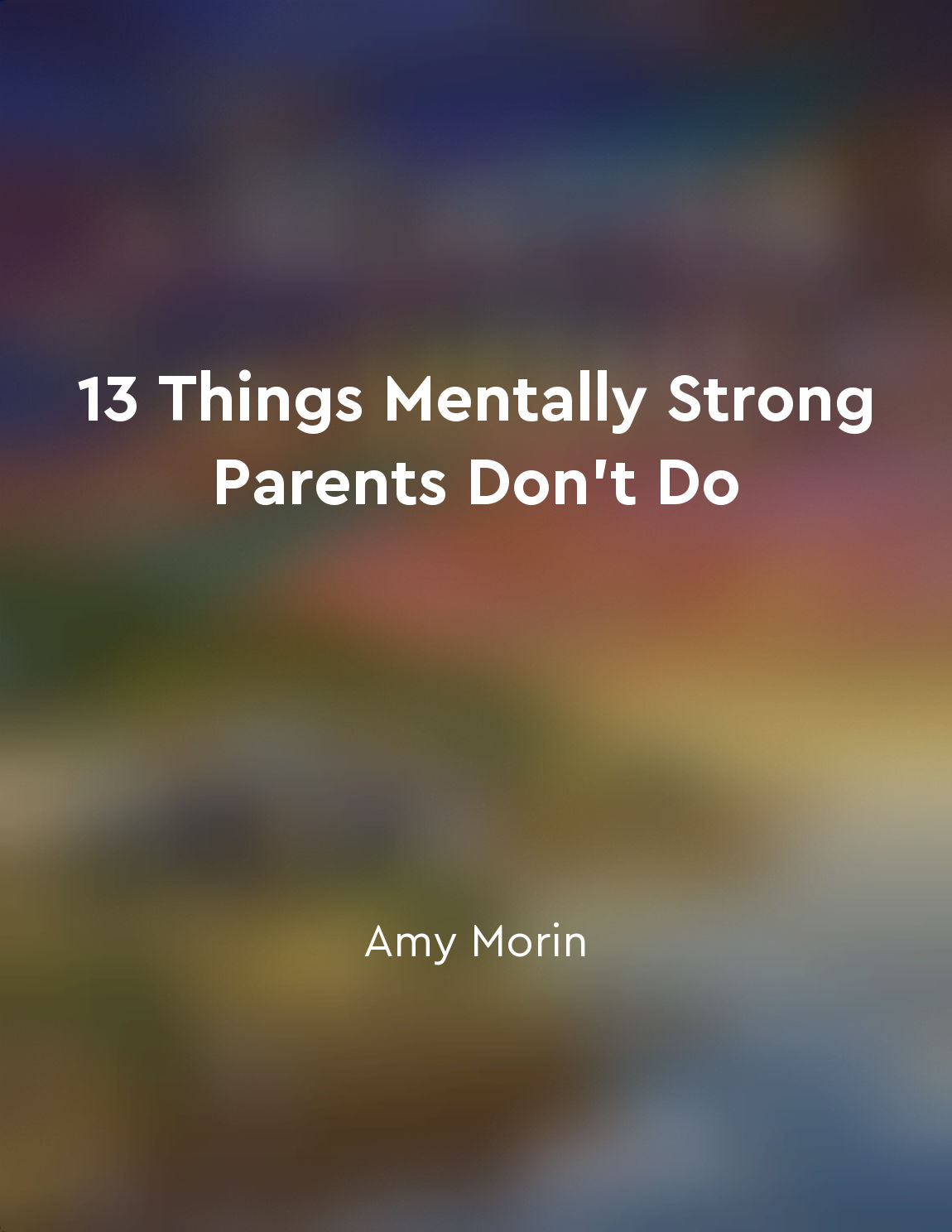Toxic parents may project their insecurities onto their children from "summary" of Toxic Parents by Susan Forward
Toxic parents often struggle with their own insecurities and fears, which can manifest in harmful ways towards their children. These parents may project their own negative self-image onto their children, seeing them as extensions of themselves rather than as individuals with their own identities. This projection can lead to unrealistic expectations and constant criticism, as the parents try to mold their children into what they believe they should be. In their efforts to control their own anxieties, toxic parents may become overbearing and intrusive in their children's lives. They may constantly monitor their children's actions, decisions, and relationships, seeking validation and reassurance for their own insecurities. This behavior can suffocate the child, leaving them feeling trapped and unable to express their true selves. Toxic parents may also use their children as a means of fulfilling their unmet emotional needs. They may expect their children to provide them with love, support, and validation, rather than offering these things to their children in return. This can create a dynamic where the child feels responsible for the parent's emotional well-being, leading to feelings of guilt and inadequacy. Additionally, toxic parents may project their own fears of failure onto their children, pushing them to achieve unrealistic goals and standards. This pressure can be overwhelming for the child, causing feelings of inadequacy and self-doubt. The child may never feel good enough in the eyes of their parents, constantly striving for unattainable perfection.- The concept of toxic parents projecting their insecurities onto their children highlights the damaging effects of unresolved issues within the parent-child relationship. It is important for both parents and children to recognize these patterns and work towards breaking the cycle of negativity and control. Through awareness, communication, and boundary-setting, healing and growth can begin to take place within the family dynamic.
Similar Posts

Let go of the past and focus on the present
The past is a heavy burden that we often carry on our shoulders, dragging us down and preventing us from moving forward. It is ...

Manipulative tactics can be subtle yet damaging
Manipulative tactics can be incredibly subtle, making them hard to detect at first. They may start off as innocent remarks or a...

Understand the power dynamics in manipulative relationships
Understanding the power dynamics in manipulative relationships is crucial for protecting yourself from emotional harm. Manipula...

Social status plays a significant role in determining how we perceive others
Social status is a crucial factor in shaping our perceptions of others. People tend to judge and evaluate individuals based on ...
Foster emotional intelligence
To develop emotional intelligence, we must start by understanding our emotions. Emotions are not something to be afraid of or t...

Focus on selfimprovement
The key to taking back control of your love life is to focus on self-improvement. This means working on yourself and becoming t...

Refrain from Punishing Your Child out of Anger
When you're feeling angry or frustrated with your child's behavior, it can be tempting to lash out in the heat of the moment. H...

Emotional reasoning can cloud judgment
When we allow our emotions to guide our thinking, we risk making decisions that are not based on logic or evidence. This phenom...
Stand up straight with your shoulders back
When you walk down the street, you should look around with your head up. This means you should put your shoulders back and keep...
Live a life free from psychopaths
Living a life free from psychopaths means breaking free from the toxic cycle of manipulation and abuse that has likely been a p...

